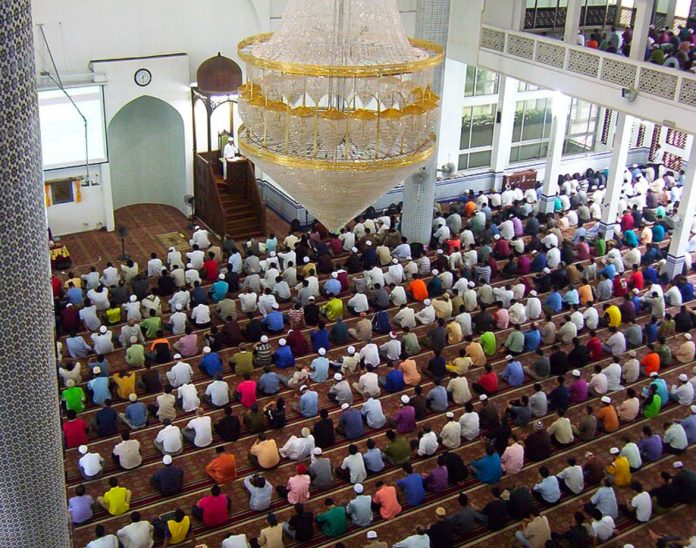In Britain today, there exists a dissonance between how non-Muslims often perceive Muslims and how Muslims themselves view their place in British society. Many non-Muslims assume that British Muslims struggle with their British identity, suspecting divided loyalties and a reluctance to integrate. However, a growing body of evidence suggests that such assumptions are not only unfounded but starkly at odds with reality. A report by the University of Essex has shed light on this issue, revealing that Muslims in Britain identify with Britishness more strongly than their non-Muslim counterparts.
This study is not an anomaly. Multiple surveys and academic studies over recent years have consistently pointed to a similar conclusion: British Muslims express a robust sense of belonging and pride in Britain. For instance:
- 83% of Muslims are proud to be British citizens, compared to 79% of the general public.
- 77% of Muslims strongly identify with Britain, significantly higher than the 50% of the wider population.
- 86.4% of Muslims feel they belong in Britain, slightly more than the 85.9% of Christians.
- 82% of Muslims favour living in diverse and mixed neighbourhoods, a stark contrast to the 63% of non-Muslim Britons.
- Among ethnic groups, 90% of Pakistanis feel a strong sense of belonging in Britain, compared to 84% of white people.
A Shared British Identity
These figures challenge the persistent narrative of Muslim alienation. They reveal a community that not only feels at home in Britain but also cherishes its diverse, multicultural society. Many Muslims appreciate the freedom to practice their religion openly in Britain, a liberty often denied in several Muslim-majority countries under despotic regimes. This sense of gratitude and belonging reflects a reality far removed from the divisive stereotypes perpetuated by some sections of the media and political rhetoric.
Indeed, British Muslims’ lives are much the same as those of their non-Muslim compatriots. The average British Muslim is far more likely to resemble a hardworking James Caan, a bubbly Konnie Huq, or a confident Amir Khan than the caricatures drawn in fear-mongering discourses. Yet, despite this normality, Muslims often find themselves cast as perpetual outsiders, a perception that has significant societal consequences.
Misperceptions and Their Consequences
Despite overwhelming evidence of their patriotism and integration, British Muslims frequently face suspicion and hostility. Consider these troubling statistics about non-Muslim perceptions:
- 47% of Britons see Muslims as a threat.
- Only 28% of Britons believe Muslims want to integrate.
- 52% of Britons think Muslims create problems.
- 45% of Britons feel there are too many Muslims in the country.
- 55% of Britons would be concerned about a mosque being built in their area.
- 58% of Britons associate Islam with extremism.
These misperceptions perpetuate a damaging cycle. For the minority of Muslims who do express dissatisfaction with Britain, their disaffection often stems from being labelled as outsiders and treated as if they do not belong. The marginalisation of Muslims risks pushing some to the fringes of society, creating the very alienation that critics claim to fear.
Moreover, the propagation of myths about Muslim integration has broader societal repercussions. The rejection of Muslims as fully-fledged Britons contributes to an environment of distrust and animosity. In the most extreme cases, this can lead to violence, as evidenced by the Islamophobic murder of Marwa El-Sherbini and far-right attacks on mosques, such as the arson in Stoke-on-Trent.
Breaking the Cycle of Distrust
The perception of Muslims as unpatriotic or unwilling to integrate is not only inaccurate but also dangerous. It creates divisions that undermine Britain’s social cohesion. In reality, British Muslims demonstrate daily that multiculturalism is not a failure but a quiet success. Their sense of belonging and participation in British society highlights how different faiths, ethnicities, and cultures can come together to build a thriving nation.
The evidence is clear: Muslims in Britain are as British as anyone else. Their higher levels of identification with Britishness, pride in citizenship, and desire for inclusive communities underscore a commitment to the country that is often overlooked. While some political leaders and media outlets claim that multiculturalism has failed, the everyday experiences of ordinary Britons, Muslim and non-Muslim alike, tell a very different story.
An Exciting Truth About Britain
What may seem like an unexciting conclusion at first glance is, in fact, rather remarkable. The revelation that Muslims in Britain are more patriotic than the general population dispels many unwarranted fears and prejudices. This truth offers a hopeful vision of a Britain where diversity is not just tolerated but celebrated; a Britain where Muslims are rightly seen as integral to the fabric of the nation.
It is time to set aside the misplaced fears and embrace the reality that Muslims are not outsiders; they are, quite simply, fellow Britons. Recognising this not only honours the contributions of British Muslims but also strengthens the unity and resilience of Britain as a whole.







